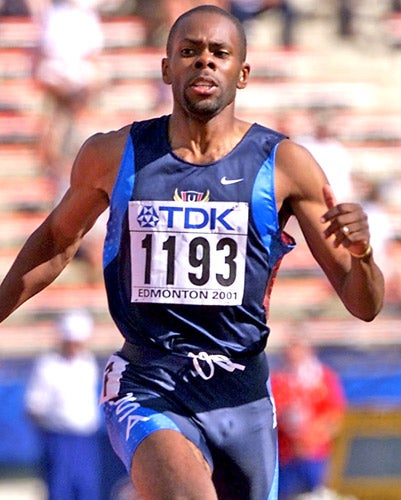Antonio Pettigrew: Sprinter who was stripped of his 1999 World Championship and 2000 Olympic relay gold medals

Your support helps us to tell the story
From reproductive rights to climate change to Big Tech, The Independent is on the ground when the story is developing. Whether it's investigating the financials of Elon Musk's pro-Trump PAC or producing our latest documentary, 'The A Word', which shines a light on the American women fighting for reproductive rights, we know how important it is to parse out the facts from the messaging.
At such a critical moment in US history, we need reporters on the ground. Your donation allows us to keep sending journalists to speak to both sides of the story.
The Independent is trusted by Americans across the entire political spectrum. And unlike many other quality news outlets, we choose not to lock Americans out of our reporting and analysis with paywalls. We believe quality journalism should be available to everyone, paid for by those who can afford it.
Your support makes all the difference.Antonio Pettigrew, who was stripped of an Olympic gold medal after admitting to doping, died yesterday. The sprinter was found dead in the back seat of his locked car; authorities said they were unsure if his death was accidental or a suicide – there was evidence that the 42-year-old had taken sleeping pills.
Born in November 1967 in Macon, Georgia, Pettigrew came to prominence at the 1991 World Championships, where he won the 400 metres gold medal and a silver medal in the 4x400m relay. The zenith of his career was the 2000 Olympics in Sydney, when he was in the US's gold medal-winning team in the 4x400m relay.
Later, however, during the trial of his former coach Trevor Graham, he admitted using human growth hormone and EPO between 1997 and 2001, and was stripped of his 1999 World Championship and 2000 Olympic relay gold medals. He was banned for two years, though he had already retired.
He went into athletics coaching, and was an assistant track coach at the University of North Carolina at the time of his death.
Join our commenting forum
Join thought-provoking conversations, follow other Independent readers and see their replies
Comments